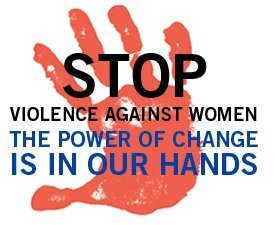 This topic is profoundly personal. It takes me back to 13 (some 20 plus years ago). At 13, I still believed in innocent friendships between “boys” and “girls.” I danced with flirtation, but hadn’t given more than a moment’s thought to intimacy or sex. Back then, I was oblivious to objectification and the over-sexualized patriarchal culture saturated with it. Women were whole human beings, just as men were. We were equals, with hearts beating in our chests, and blood pulsing through our veins. In that age of innocence, I wasn’t just a body, I was also a soul and a spirit.
This topic is profoundly personal. It takes me back to 13 (some 20 plus years ago). At 13, I still believed in innocent friendships between “boys” and “girls.” I danced with flirtation, but hadn’t given more than a moment’s thought to intimacy or sex. Back then, I was oblivious to objectification and the over-sexualized patriarchal culture saturated with it. Women were whole human beings, just as men were. We were equals, with hearts beating in our chests, and blood pulsing through our veins. In that age of innocence, I wasn’t just a body, I was also a soul and a spirit.
All that shifted after sexual assault. Violation has a way of redefining everything. Coloring everything anew. Violation alters reality. For me, it had created a push and pull; a tug of war. Sometimes I wanted to be feminine, but I didn’t want to send the wrong signals. In those moments, I cloaked myself in skirts to my ankles and never dared expose a shoulder. At other times, I felt rebellious, and refused to have one moment in my life change everything. In those moments, I put on the shortest skirt I could find and danced the night away. No matter how I looked or what I was wearing, one thing was clear, a significant part of our population (particularly di “man” part) saw only the external and had little interest in who I was deep down inside. It is this disconnection, I believe, that remains at the root of violence against women.
In our upcoming episode of Ennufff we’ll talk through our personal experiences with objectification, discuss articles like Shocking attitudes point to deep misogyny in Congo, and The Macho Paradox, a book written by Jackson Katz, which insists we need to see violence against women as a man’s issue. Nelson Mandela tweeted recently, “As long as we take the view that these are problems 4 women alone 2 solve, we cannot expect to reverse the high incidence of rape.” With time, I’ve come to understand exactly that. We have to tackle this issue together. We have to talk about objectification and how culture and tradition normalize it. We have to ask our brothers to talk to one another, to remind one another that women (all women – not just their mothers, sisters, and daughters) are more than bodies, they are souls and spirits (like I was at 13; like I am again now that I’ve reclaimed my power).

THANK YOU Ennufff!